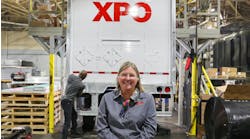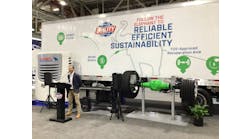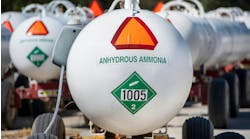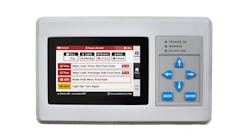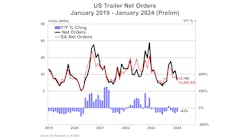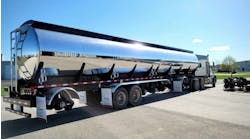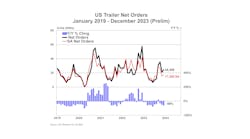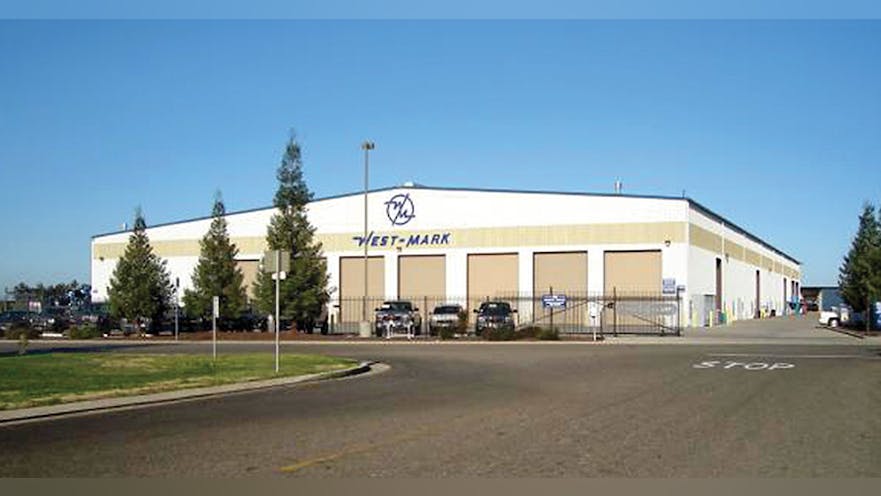West-Mark Tank & Trailer is celebrating its 50th anniversary of manufacturing quality cargo tanks, trailers, and custom equipment for the transportation industry. This achievement was made possible by collaboration between great customers, employees, vendors, and all others that enable a company to reach this rare milestone.
West-Mark was founded as a tank repair facility and quickly began manufacturing sanitary tanks for the large milk industry in California. Their quality, innovation, customer service—and the fact they were just good, honest people to deal with—soon had them expanding into all types of tank equipment: chemical, fuels, fertilizers, and many other products, both DOT code and non code.
Over time, West-Mark started servicing the oil industry in Alaska, other US oil regions and Canada, and developed a successful product line for that market. Specialized cargo tank sales to local, state, and federal government agencies also helped spur growth.
“It all started with my father, Jack Smith, who was living in Fresno, California, and working as a salesman selling Jello,” says Grant Smith, West-Mark national sales manager. “His good friend moved to Modesto to manage the Utility Trailer dealership. He coaxed my dad, who had no experience selling trailers, to join him as a salesman. So, my mom and dad packed up their five children and moved.”
Branch manager
Jack Smith eventually became manager of the dealership, which came to include cargo tanks. He found out he had a greater liking for the tank side of the business.
In the mid 1960s, he opened a tank repair shop with a farmer friend, Art Nunes, who provided the initial investment. After a couple of years, they bought World War II era fabrication equipment and inventory from the Heil operation in Modesto for approximately $18,000. The shop was established as Certified Stainless Services, which is still the official corporate name of West-Mark.
Dairy operations were expanding in California and surrounding states, and Certified Stainless Services quickly moved into selling milk tanks in the dairy-rich Central Valley. The company began fabricating specialized equipment, including a round pump box that was lighter and more compact along with many other lightweight innovations.
To meet growing demand for milk tanks and trailers, the partners decided in 1969 to build a larger factory, selecting a former chicken ranch in Ceres, California, for the location. The factory was a metal building purchased from the government, and an old farmhouse served as offices for the next 15 years..
Name change
During the 1970s, the brand name was changed to West-Mark, and the company expanded into code tanks. During the mid to late 1980s, West-
Mark began developing custom oilfield equipment for Alaska and Canada.
A new manufacturing plant was opened in Atwater, California, in 2001 to keep up with steadily growing customer demand. Shortly thereafter a fabrication shop was opened in Atwater featuring the latest equipment for proprietary parts, small fabrication, and special projects. The main office and a service center are still in Ceres and today West-Mark has service and parts centers in Bakersfield, California and Fairbanks, Alaska. All shops are ASME certified and repair shops all have R stamps.
Recently, West-Mark underwent a change in ownership. Minority partners, Scott and Todd Vincent, who have been with West-Mark a combined 55 years, now have controlling interest. West-Mark is also a partial ESOP with the employees owning a percentage of the stock.
Grant Smith will remain as national sales manager and Jack, though “officially retired” continues, at age 92, to come in to the office every morning.
Looking to the future, Grant Smith says: “West-Mark will continue to grow its marketing reach, and we see more service centers in our future. We are optimistic that we will see continued recovery in the oil industry and continued growth in government contracts. Demand for commercial tank trailers should remain steady.”
